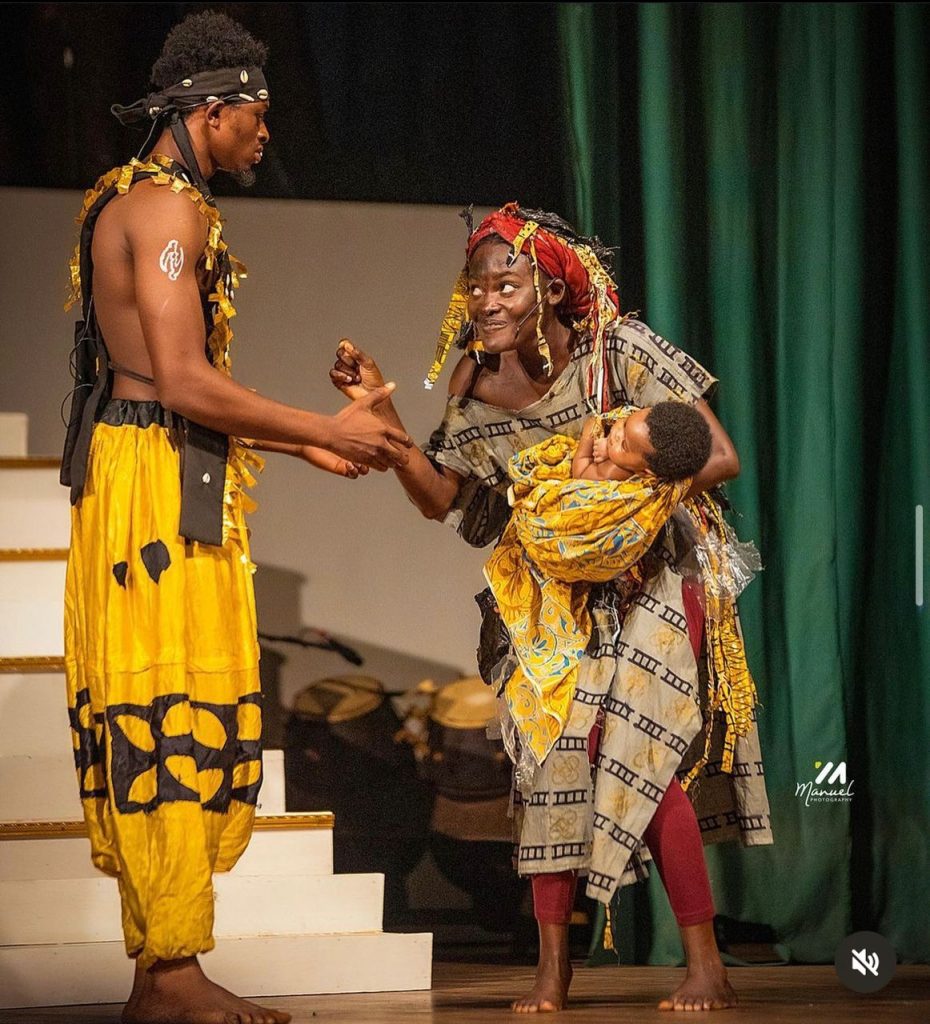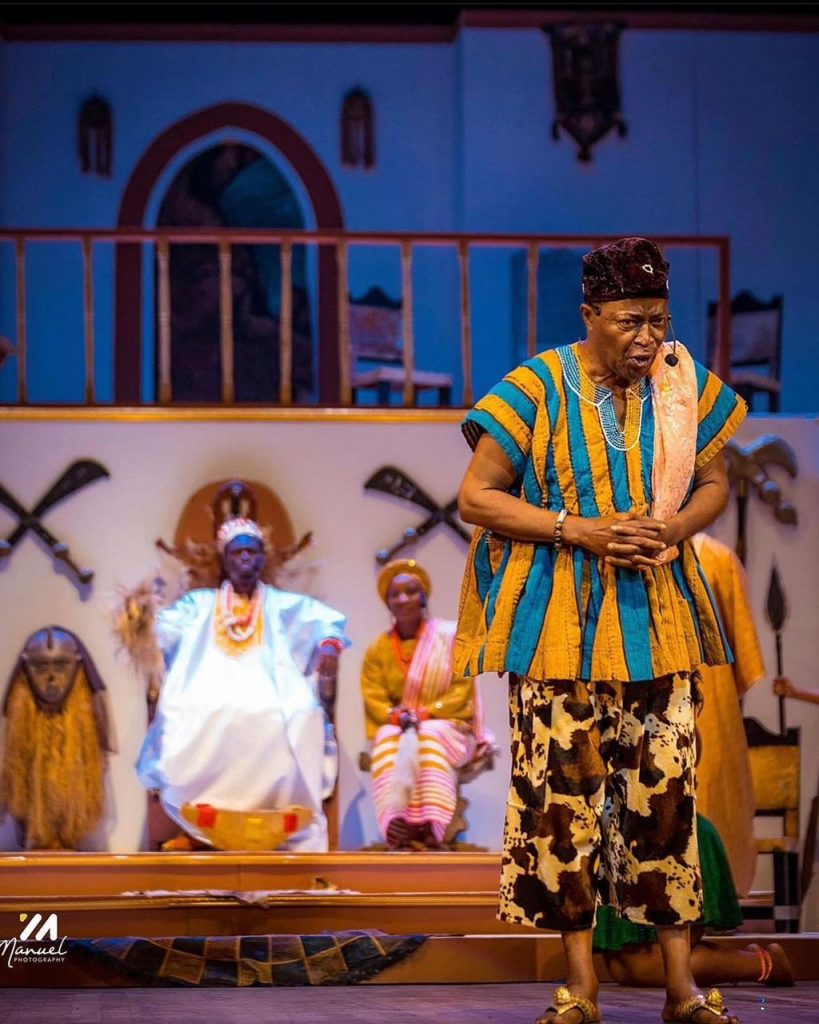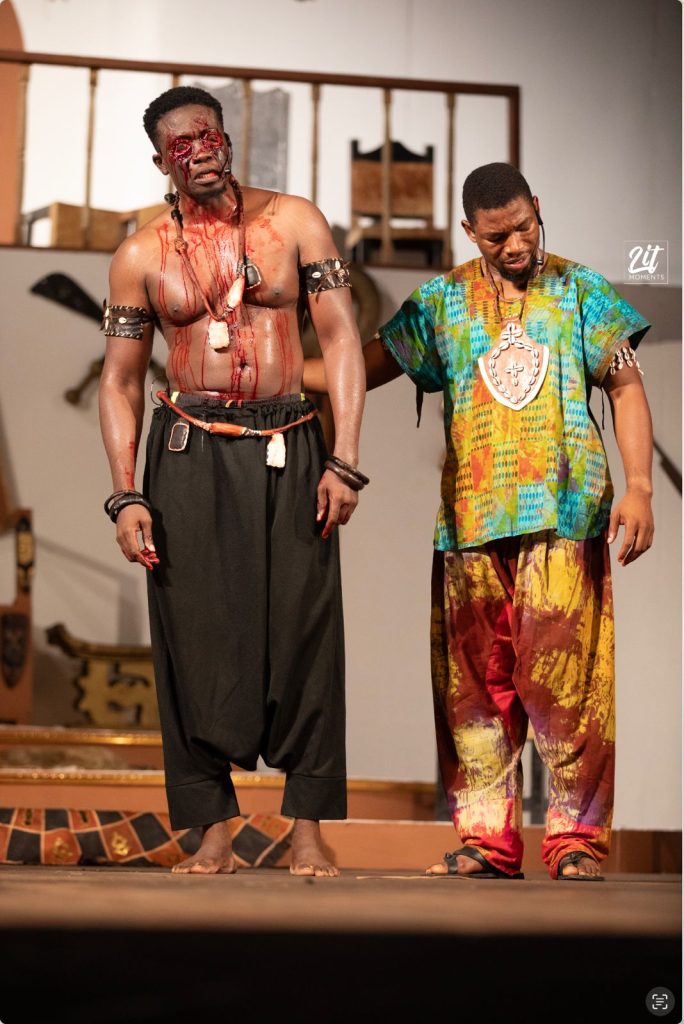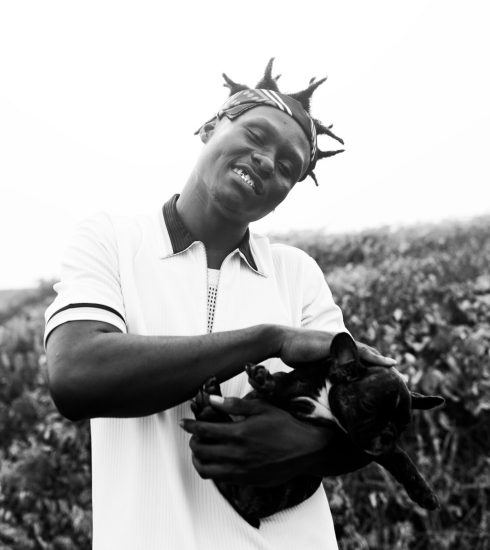Man’s Futile Attempt to Escape Destiny in “The Gods Are Not to Blame”
Ola Rotimi’s famous play was staged in Ghana to rave reviews and audience response

Date Staged: 20th December 2023
Location: National Theatre
Time Run: 2+ hrs
Title: The Gods are not to blame
Director: George Quaye
For many years, Literary scholars and dramatists have argued about the thin line between Tragedy and Comedy. Many have argued that they are the same, the only difference being from whose perspective the story is being experienced; so to the victim or main character, it is a tragedy when they go through something unexpected but to a viewer or someone being told the story, it is pure comedy. The famous American comedian Chalie Chaplain puts this more succinctly: “Life is a tragedy when seen in close-up, but a comedy in long shot” In real life and storytelling, this is not far from the truth.
“The Gods are not to Blame” perfectly illustrates this literary debate; so much so that it’s a recommended text for secondary schools in West Africa You’ve probably come by this story, it’s a popular Nigerian play by Ola Rotimi which is a adaptation of a Greek play by Sophocles performed around 429 BC. The Nigerian playwright, Ola Rotimi does a great job adapting this story into his Yoruba culture and staging one of the most popular plays on the continent. This is the synopsis
In the land of Kutuje, a young Prince is born and as it’s customary of the land, King Adetusa, father of the baby Prince seeks the face of the gods about the child’s destiny. Baba Fakunle, the Priest gives a prophecy that the boy will grow up to kill his father and share a bed with his mother. To avert this calamity, the king orders that the baby be killed but instead the messager sent to do this wraps the boy in a cloth and leaves him in the forest. Through a series of events, the young Prince survives and finds himself chosen as the king of Kutuje the land of his birth many years later. Unbeknownst to him, he had killed his biological father on his journey and now as King, married his mother.
The play as the title suggests makes a commentary on the inevitability of a man’s destiny as it’s a decision of the gods that can’t be escaped. It also clearly demonstrates the presence of gods, ancestors, and deities in African society and how they guide the decisions of Kings and men.


The Play which was staged in Accra, Ghana in December was a commercial success, directed by a known Entertainment personality George Quaye in partnership with Ghanaian actress Naa Ashorkor and her company April Communications. The two stalwarts brought on board valuable experience in acting for film, and television and a deep understanding of PR, Advertising, and media relations. Such personalities managing large-scale Productions is a good look for the Theatre scene in Ghana since such faces assure potential investors of commercial success and return on Investment.
Also, they were bold enough to take on a big title like this which markets the play and draws a large audience already familiar with the story
Let us review salient parts of the play
Event Management
This was probably the only disappointing part of the night but also a good indicator in a way. Considering that this was the 4th time the play was being staged and on a Wednesday night, the attendance was so much that the Organizers had to turn people away. After I found my way inside, there weren’t any seats I could find and I had to perch on a staircase. The space still gave me a good view of the stage and I was grateful enough.
Music and Dance
As expected, the music and dance were traditional; borrowing heavily from Nigerian and Ghanaian culture. In an earlier scene, an Ewe song from Ghana was performed adding to the narrative of the play. The play had a full cultural troupe who came in intermittently to sing and dance serving as interludes in the story and also adding to the rich cultural tapestry the production team was going for. This also added some much-needed spectacle making the scenes larger than life and very memorable. In some scenes where live music wasn’t used, background music from the Theatre’s sound system was used. My only concern with this was in some parts where contemporary music was used as background music, though fit the scene, was very difficult to reconcile it with the African traditional music which had become a signature of this play and sounded more appropriate
Set and Props
As told in the original play, most of the action in the play happens in the palace in Kutuje and this was the main set built on stage. The set featured cultural totems and emblems serving as enriching details of the cultural setting of the play. However, the set seemed to fill most of the stage and didn’t give the actors enough room to perform. The set designers also did a great job building a huge set which gave the palace the air of authority it needed.

Lighting
The play used simple lighting techniques to tell the story. A spotlight is used when the narrator or main character has to deliver their lines and dramatic lighting for thunder and lighting. The lighting was very functional, just complimenting the story instead of being used for purely aesthetic purposes. For a story of depth, simplicity in lighting was the best choice to move the story and convey the deeper layers of the story to the audience
Spectacle

This play emphasized spectacle, something I found very useful for this story. The costuming and set featured beautiful colors and fabric; in a scene where a crowd appeared on stage, they were all well costumed blending the style from different cultures in West Africa. The Director was deliberate in making sure the audience left the play with memorable imagery and spectacle. The most memorable part came in the second act when Odewale was pronouncing a curse and wielded a cutlass of the Ogun god he served. The Cutlass lit a fire on stage in a way that had to employ some engineering and safety precautions. Such attempts to stage daring scenes like this were well received by the audience who applauded continuously.
Performance
Probably the best part of the play for me, the performance by key characters was one of the best I have seen in a while. The play featured Ghanaian theatre and film legends like David Dontoh who was the narrator and Fred Amugi who was the Ogun Priest and other veterans. Their performance and experience brought the much-needed maturity to the performances as the story required. The actor who played Odewale also had a good understanding of the character building a connection between the audience and his predicament

Messaging
One key area I believe a lot of stageplays struggle to achieve is to convey the specific message or lesson in the form they want their audience to understand. This seems to be more of an audience deficiency in Ghana here. Whichever side we try to lay the blame on, this is still one area in the play that wasn’t very successful. The Story is a tragedy, supposed to translate poignant lessons about life and the failure of a man. However, Ghanaian audiences seem to be used to comedy as an art form and turn to laugh at tragedies when they are presented with it. Perhaps what’s happening is the quote I shared earlier in this piece about the fine line between tragedy and comedy but it seems to be deeper than that. Most stage plays and films in Ghana are mostly comedic, and the result of that is an audience that enters theatres and cinema halls looking for laughter and not solemn introspection. This play singing to that audience suffered at conveying the tragic message in this play and instead received laughter for even the goriest and most sensitive scenes in the play.

For someone who truly believes in the potential of theatre to uplift Ghana’s entire art scene, I am glad this play was staged with so much boldness and fearlessness. Moreover, I am happy that people badly want to watch it and appreciate it. Hopefully, this should birth the much-needed renaissance the theatre and film industry needs. The team in charge of this has stated that they will be staging other Ghanaian and Nigerian plays and I wish them all the best in their pursuits. I hope unlike Odewale, the gods plan immense success and support for their courage.










